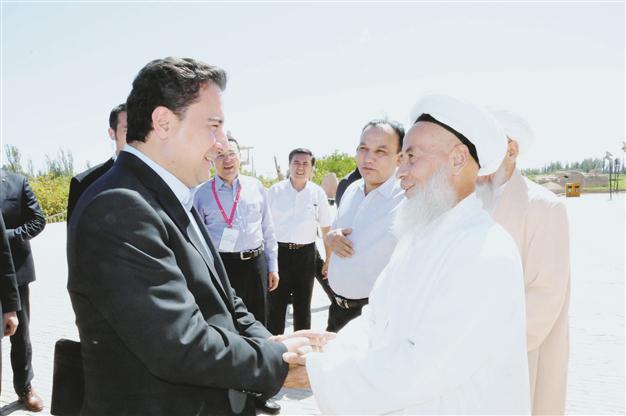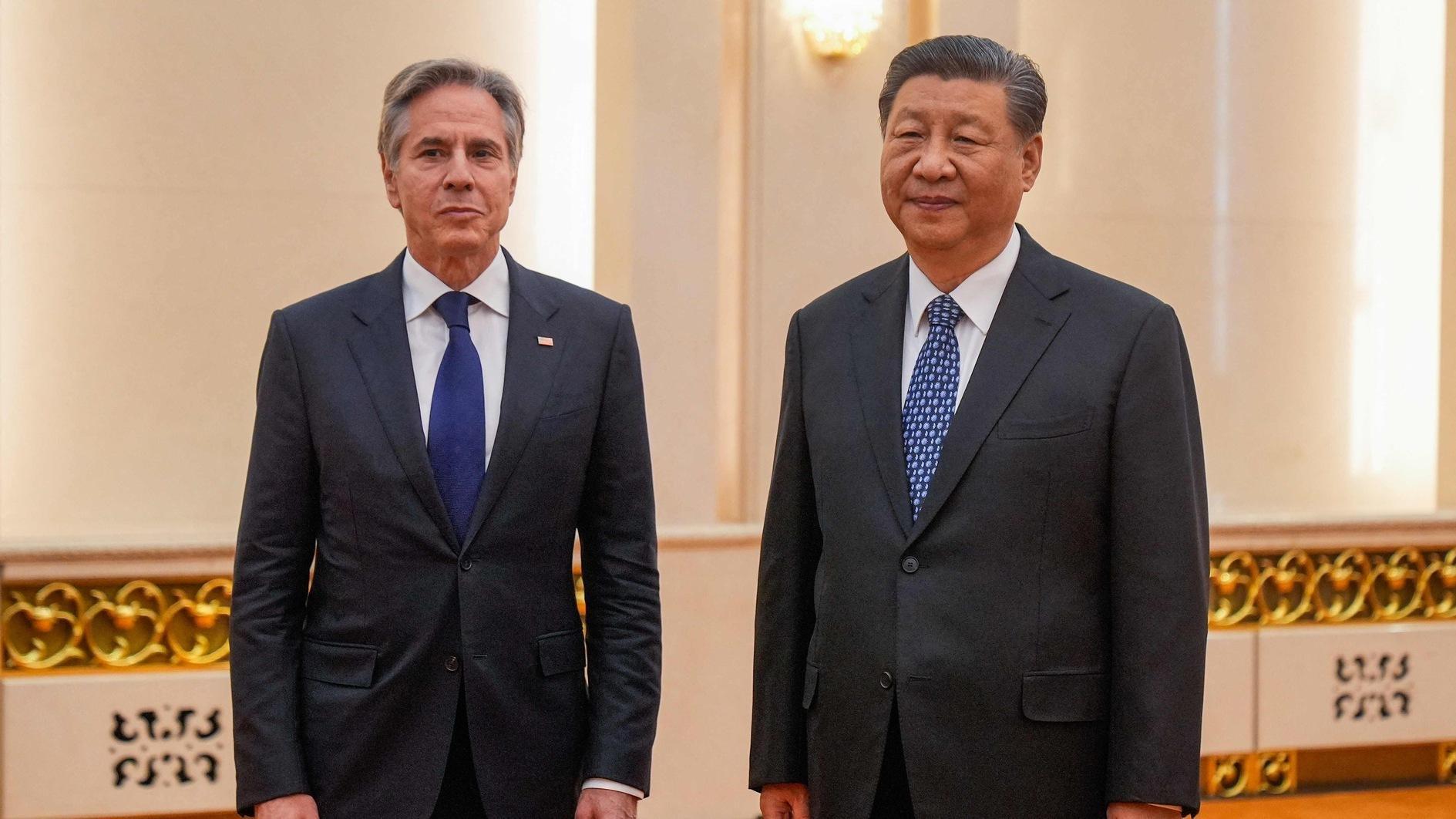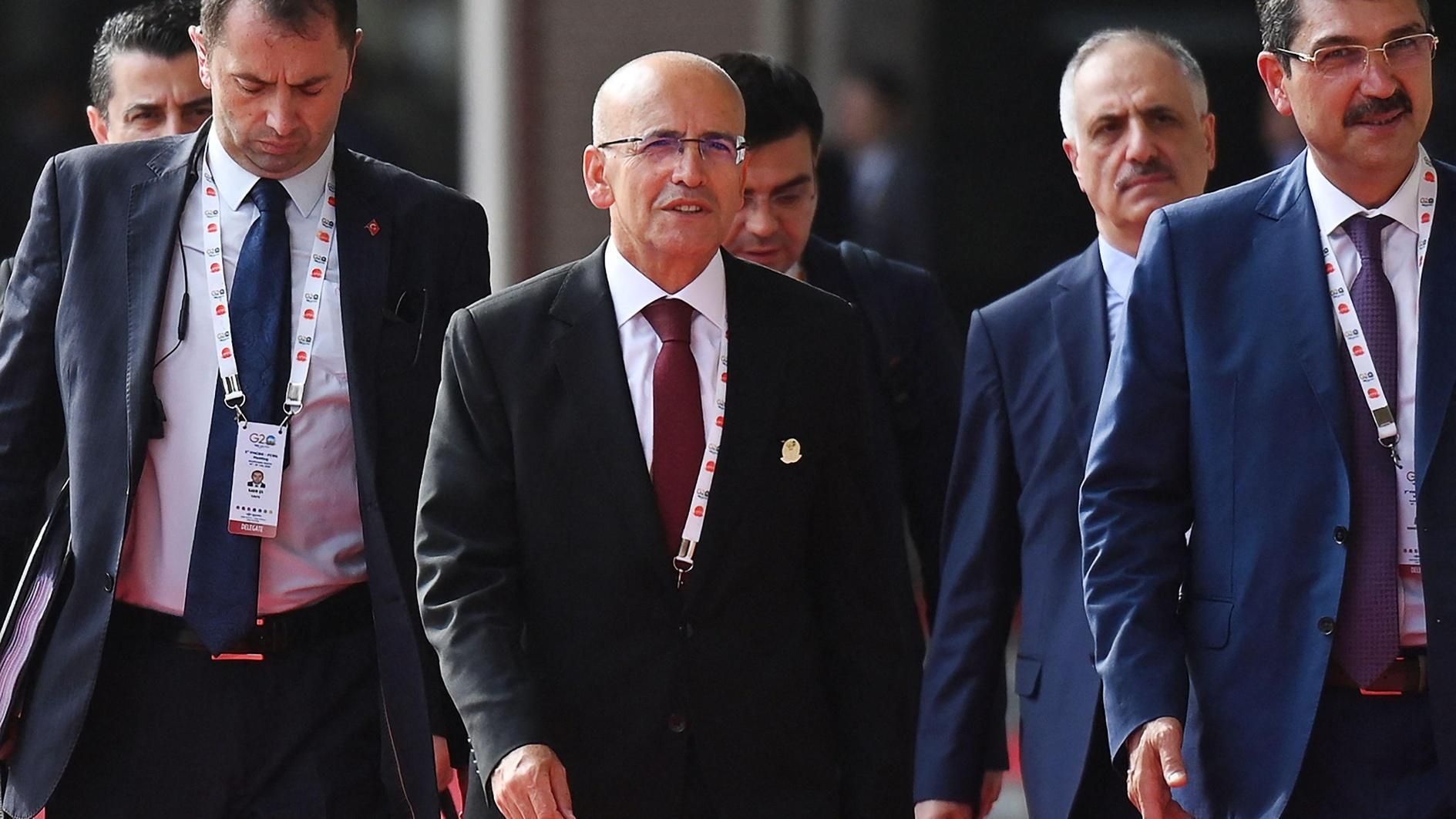‘Future Syria ties’ promising
URUMQI - Anatolia News Agency

Turkish Deputy PM Ali Babacan greets a local in the Uighur Autonomous Region in China. AA photo
A democratic, open Syrian regime founded in the future would contribute much to Turkey-Syria economic ties, Deputy Prime Minister Ali Babacan has said.“Once Syria gains stability, and a representative democracy is established there, with a new Syrian regime, our relations will reach a very different level,” Babacan told Anatolia news agency on the sidelines of the China-Eurasia Expo in Urumqi, the capital of Xinjiang Uighur Autonomous Region in China.
“Thus, the positive future potential is very important. Maybe there will be some hardships in the short run but a democratic and open-to-the-world regime in Syria with a high representative power will largely contribute to Turkey-Syria economic ties,” he said.
Turkey’s exports to Syria were limited in the past, Babacan said. “When considering a drop in exports, I don’t think the loss is big.”
Syria is important as a transit country for Turkey’s exports to third countries, but alternatives will develop in time, he said.
Regarding the economic crisis in the EU, Babacan said 17 of 27 EU countries had a common monetary unit, adding that use of this common monetary unit was not a mechanism to solve all problems on its own, as everyone agreed.
“If this is the case, some countries will leave the monetary union, or if [the zone] wants the monetary union to continue, the European Union will have to become a fiscal policy union or a banking policy union. If the banks under pressure, or the ones who need liquidity, are applying to the European Central Bank, then inspections and regulations of these banks should also be implemented by a central body.”
Confident about targets
Speaking on the domestic economy, Babacan said the 2012 conjuncture in the government’s midterm program was more negative than 2011’s, however, the 4-percent growth target for 2012 had not changed.
Babacan said the Central Bank’s year-end inflation expectation was 6.2 percent, defining the figure as a “reasonable” one.
Regarding export figures, Babacan said Turkey’s exports to EU countries had not shown a good performance due to the economic problems within the EU.
Noting that Turkish exporters were focusing on non-European markets, Babacan said export figures to Middle Eastern countries – except Syria and Arab Spring countries – were satisfactory, adding that the Iraqi market had expanded surprisingly.
Asian countries and Latin America are important markets too, said Babacan, adding that Turkey should focus on these markets more.
Babacan also expressed pleasure over Urumqi’s becoming a door for China’s opening to Central Asia and beyond. ”I see this fair as the determination and sincere desire of China to develop its regional commercial relations.”
The deputy prime minister said Turkey and China aimed to increase their mutual trade volume to $50 billion by 2015, and $100 billion by 2020.
The Xinjiang region’s population is around 20 million and about half are Uygur, he noted.
About one-third of Chinese oil and natural gas reserves lie here and the territory also has great agricultural potential, Babacan said, adding that Xinjiang had much to offer Turkish investors.
















